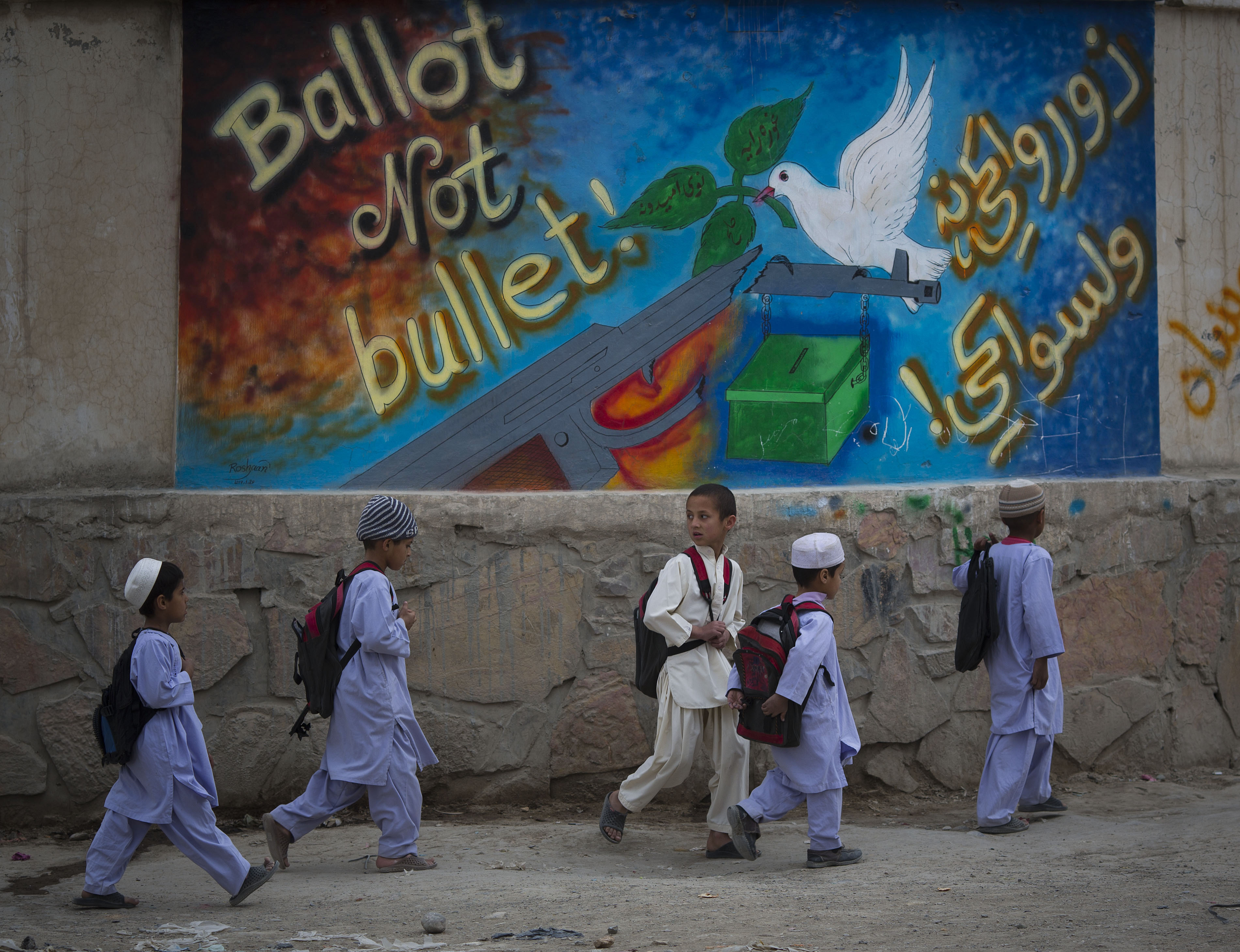Amid the dust and traffic of today's Kabul, three things remain almost as they were a decade or so ago. In winter, and when the wind clears the smog that is a side effect of years of economic boom, the blue sky above the snowcapped peaks that ring the city is as impressive as ever. Then there is the Arg, the sprawling palace at the city's center and the apparently calm eye of a turbulent storm of a country. The complex is home to the third element that has remained constant since the end of the Taliban's grim regime in 2001: Hamid Karzai, now in his 13th year of power.
However, Karzai, 56, will soon be gone. He is constitutionally barred from contesting next weekend's elections and soon this theatrical, mercurial, complex man will have to find a new occupation. Many, particularly in Washington, will be relieved.
Once, the prospect of Karzai losing power would have provoked a different reaction. Back in the chaotic days of late 2001, as the Taliban regime crumbled under the U.S. assault launched in the aftermath of the 9/11 attacks, Karzai was seen as the man of the hour. He was the head of a major tribe, of Pashtun ethnicity like the apparently defeated Taliban and around 40 percent of his compatriots, but moderate, educated and pro-Western. Officials in Washington, Kabul and London enthused about their newfound Afghan hero. Few are as gushing now.


















With your current subscription plan you can comment on stories. However, before writing your first comment, please create a display name in the Profile section of your subscriber account page.